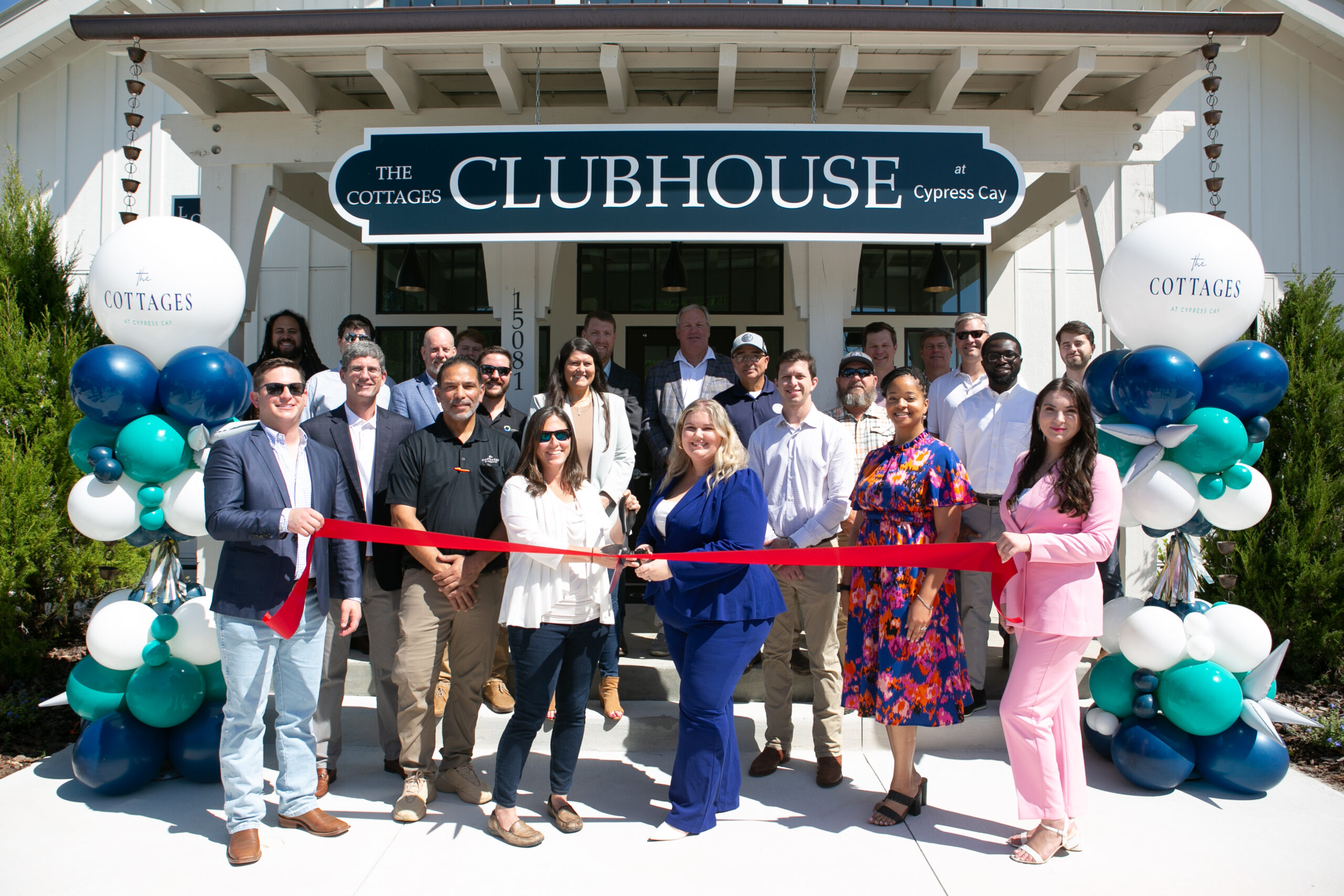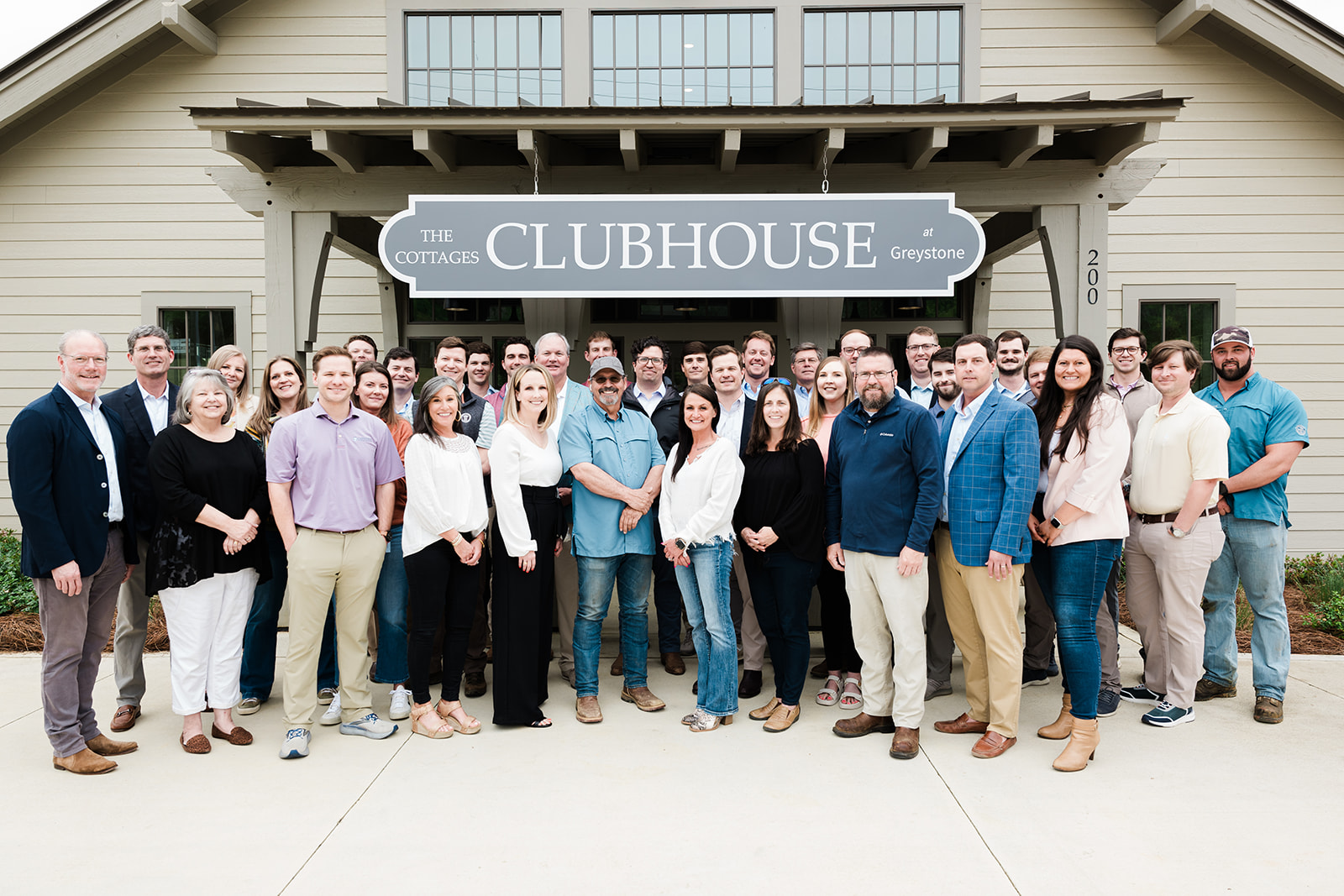College students basically had two housing choices for most of the latter half of the 20th century. They either lived in a dorm or fraternity/sorority house, or they moved into the equivalent of an egg carton for humans. Flat, straight, methodically partitioned apartment complexes with either one or two bedrooms, a single bath, and no imagination.
Sure, there were a few off-campus rental houses or trailer parks nearby. But for the most part, students went through the creative years of college while living in some of the most uncreative housing options on the market, complete with a view of the parking lot.
In the 1990s, Birmingham-based Capstone Development did some homework and decided there should be another option. Led by founders Mike Mouron and John Vawter, Capstone became a national leader in the development of college housing that, increasingly, felt more like a home than an apartment. By 2012, Capstone had accumulated a project portfolio of $2.7 billion, with 118 communities in a total of 31 states.
Capstone Development underwent a restructuring at that point, and the student housing work continued under the newly created Capstone Collegiate Communities. Then in 2017, Capstone graduated into the multifamily sector, taking the knowledge the company had gained on college campuses and utilizing it in the rapidly growing build-for-rent movement.
“We took what we had applied to student housing, and executed that model in new opportunities,” Capstone Communities Executive Vice President of Development John Acken says. “Just like with student housing, there was a missing middle in multifamily that wasn’t being filled. You could either buy a home, or you could rent an apartment. We saw an opportunity between those two.”
Since then, Capstone Communities has created several of these types of developments throughout the Southeast, including the recently completed 275-unit Cottages at Old Monrovia in Huntsville. The company recently began working on the Cottages at Greystone, located on 30 acres south of Birmingham just off U.S. 280.
“We probably underestimated the sheer demand for this missing-middle type of housing,” Acken says. “The excitement around this sector over the last couple of years has been incredible. And our ability to build these and manage them has led to great opportunities.”
Capstone truly first ventured down this path in 2005, when Vawter saw some cottage-style rental homes being developed near the University of Georgia in Athens. He reached out to Louis Nequette of Birmingham’s Nequette Architecture & Design and asked if he would like to partner in the creation of a similar development in Auburn.
“We went to Athens to look at what was there, and once I saw it, I was really excited,” Nequette says. “I could immediately see how this rental neighborhood was a living choice that had really not been offered before. He got me hooked on the concept.”
Basically, the concept is to offer the amenities that come with renting an apartment — including unit and property maintenance and extras such as a swimming pool — but inside the physical structure of a housing community, with the type of space and privacy — high ceilings, a backyard, driveway and garage, for example — not found in a standard complex.
“What we’re doing now with Capstone is serving a rapidly expanding market segment of America called renters-by-choice,” Nequette says. “For a long time, there was renting by necessity, and there was home ownership. If you wanted a little more space and an outdoor area and some privacy, then you had to save money and take this big leap into home ownership.
“A lot of people today want the flexibility to be able to move around that you can get from renting, but they also like the benefits of home ownership. That’s what this does. It gives a very high-quality, single-family home where you have your own yard and no one is living above you, but you still have the service that comes with a management company.”
Brad Hunter, of Hunter Housing Economics, says approximately 100,000 build-for-rent units were completed in the United States in 2021, with an estimated 120,000 units expected to be finished this year. Acken says demand for this type of housing is coming from several segments.
“First is somebody who has just graduated from college who doesn’t have a lot of money, but would love to have a single-family home,” Acken says. “This allows them to rent a home and serve that need.
“The second group is someone who is moving into a new city. They don’t know all the neighborhoods and the school systems. So instead of just coming in and buying something right away, this gives them an opportunity to live in a home, rent for a year, and figure out where they eventually want to buy.
“And the third group is retirees who no longer are interested in home ownership, or they’re looking for a second home but would rather rent it than buy. So, if they have grandkids in another city, they can get a rental home there and live in it for several weeks at a time and visit.”
Shep Nolen, president of Capstone’s in-house construction division (CBI Construction Services), says the biggest issue facing the company right now is keeping up with the demand while also dealing with such issues as the rising cost of building materials, supply chain shortages and a highly competitive labor market.
“That’s been a challenge, but overall we’re very bullish on the cottage concept,” Nolen says. “The idea of a resident being able to drive up to their front door, have their own private backyard, have amenities like a pool — all in a rental — will continue to be enticing.”
Nequette agrees. And he says Capstone’s background and creativity should enable it to be at the head of the class.
“There are few other organizations that can bring to the table their accumulated wealth of knowledge,” Nequette says. “What inspires them is doing inspiring work. They want to create new places that make a difference. When that’s the case, everything else will fall in place, and the project will turn out to be something special.”
And while those projects no longer are confined to campus housing, Acken says Capstone will maintain the collegiate aspect that gave the company its name.
“We see the opportunities in this other sector, but we certainly haven’t closed the door on student housing,” Acken says. “We’re just always looking for the next opportunity. How can we innovate? What needs are not being filled? And then go in that direction.”
Cary Estes and David Higginbotham are freelance contributors to Business Alabama. Estes is based in Birmingham and Higginbotham in Decatur.

